#girls be ambitious!
Explore tagged Tumblr posts
Text

what's worse -- feeling the depths of your desire for the first time, or having all your closest friends around to witness it?
prints ♣︎ song
#dungeon meshi#marcille has always been ambitious but up until this point she's primarily driven by fear#desire for desire's sake is a new concept for her (after 50 years!!) and it totally overwhelms her#she is so beloved for that.#ryoko. kui. is. brilliant. I can't overstate that enough. and she's FUNNY about it too like??? girl#don't make me squawk laugh after I just burst into tears two pages ago. ms. kui you're too powerful#dungeon meshi spoilers#marcille donato#senshi#izutsumi#laios touden#chilchuck tims
2K notes
·
View notes
Text










⭐️🎀🎃。☆ ゚ * ¸* .魔法使いの女の子 。 ☆ ゚ * ¸* .⭐️🎀🎃
#アニメ#かわいい#🕷🎀˚₊‧꒰ა ♡ ໒꒱ ‧₊˚🎀🕷#animecore#anime#otakucore#kawaii#kawaiicore#webcore#00s#2000s#2000s core#emocore#weebcore#vn#visual novel#game cg#gif#my gifs#jojifuku#anime halloween#WIZARD GIRL AMBITIOUS#WGA#ウィザードガールアンビシャス
363 notes
·
View notes
Text
The Raven Queen came to the god of death before her in his frozen enclave. They danced through words over the years and while at first he may have seen her as a disciple, eventually they became friends, and she thinks she loved him at the end. They worked together to craft the Ritual of Ascension, and now he is at peace, though his ghost may live on in the cold of winters, in the darkness at the corners of the world, and she cares for him still in the way she cares for all beings
#critical role#cr spoilers#cr3#cr lore#the raven queen#RAVEN QUEEN I LOVE YOUUUU#WHAT DO YOU MEAN YOU LOVED A GOD AND WITH HIS AGREEMENT UNDID HIS VERY EXISTENCE#GIRL W H A T#what I wouldn’t give to have a raven queen origins where she’s a brilliant ambitious young woman who comes to love death#and because of that love she undos and becomes it#ok!!!!
181 notes
·
View notes
Text


STRAWBERRY CAKE
#xdinary heroes#xh#xdh#SORRY I KNOW ITS NOT XH THEMSELVES. I just love this girl from the boy comics mv#she is SO CUTE!!!!!!!#i have two more things I'm drawing from the mv bc i like the song so much. we'll see if i finish them bc I'm being ambitious
306 notes
·
View notes
Text




sunghoo-oo-oo-oo-oo-oon for xo performance vid <3
#enhypenet#malegroupsnet#kpopco#enhypen#sunghoon#forparker#ambitious return to the gifmaking sphere.. whether my next set is in two days or two months i enjoyed making these..#girl who is so so brave for opening photoshop and making gifs for the first time since may..#z.sunghoon#z.enhypen#z.gif
87 notes
·
View notes
Text

#luxury aesthetic#billionaire#level up#millionaire#boss#glow up#luxury#girl boss aesthetic#self care#self love#ambitious#ambition#high value woman#high quality#black women in luxury#women in luxury#black girl aesthetic#blackpink lisa#rich aesthetic#rich girl#rich#big money#money
257 notes
·
View notes
Text
Frev friendships — Robespierre and Éléonore Duplay

Please present the testimonies of my tender friendship to Madame Duplay, to your young ladies, and to my little friend. Also, please do not forget to remind me of La Coste and Couthon. Robespierre in a letter to Maurice Duplay, October 16 1791
Present the testimonies of my tender and unalterable attachment to your ladies, whom I very much desire to embrace, as well as our little patriot. Robespierre to Maurice Duplay, November 17 1791. These letters are the only pieces conserved in which Robespierre mentions Éléonore.
[Robespierre’s] host's daughter passed for his wife and exercised a sort of empire over him. Causes secrètes de la révolution du 9 au 10 thermidor (1794) by Joachim Vilate, page 16.
When the constituent assembly was transferred to Paris after the October days, Robespierre came to stay in the house of Duplay, located on rue Saint-Honoré, opposite the convent of Assomption, and wasted no time in becoming a zealous devotee. The father, the mother, the sons, the daughters, the cousins, etc, swore only by Robespierre, who deigned to raise the eldest of the two [sic] daughters to the honors of his bed, without however marrying her other than with the left hand. At the time of the organization of the revolutionary tribunal, Robespierre had father Duplay appointed as juror; the two sons had a distinguished rank among Maximilien I’s bodyguards, whose leader was Brigadier General Boulanger. Mother Duplay became superior of the devotees of Robespierre; and her daughters, as well as her nieces and several of her neighbors, obtained high ranks in this respectable body. Souvenirs thermidoriens (1844) by Georges Duval, volume 1, page 247.
It has been rumored that [Éléonore] had been Robespierre's mistress. I think I can affirm she was his wife; according to the testimony of one of my colleagues, Saint-Just had been informed of this secret marriage, which he had attended. Mémoires d’un prêtre regicide (1829) by Simon-Edme Monnel, page 337-338.
Madame Lebreton, a sweet and sensitive young woman, said, blushing: “Everyone assures that Eugénie [sic] Duplay was Robespierre’s mistress.” “Ah! My God! Is it possible that that good and generous creature should have so degraded herself?” I was aghast. “Listen,” cried Henriette, “don’t judge on appearances. The unhappy Eugénie was not the mistress, but the wife of the monster, whom her pure soul decorated with every virtue; they were united by a secret marriage of which Saint-Just was the witness.” Souvernirs de 1793 et 1794 par madame Clément, Née Hémery (1832) by Albertine Clément-Hémery.
[Robespierre’s] relationship with Éléonore, the carpenter's eldest daughter, had a less protective and more tender character than with her other sisters. One day, Maximilien, in the presence of his hosts, took Éléonore's hand in his: it was, in accordance with the customs of his province, a sign of engagement. From that moment on he was seen more than ever as a member of the family. Une Maison de la Rue Saint-Honoré by Alphonse Ésquiros, published in Revue de Paris, number 9 (May 1 1844). At the end of this article, Esquiros claimed to have obtained the information contained in it from Éléonore’s sister Élisabeth. Shortly thereafter, said Élisabeth did however write a letter to the paper in order to ”protest loudly against the use that, without consulting me, you have made of my name, and to declare that this article, on many points in contradiction with my recollections, also contains a large number of inaccuracies.” She does unfortunately not indicate exactly which parts of the article are inaccurate and which ones are not, and certain details contained in it match up too well with what Élisabeth writes in her (by then not yet published) memoirs for me not to believe Esquiros hadn’t actually interviewed her prior to writing the article. In spite of her complaint, all the information in article was republished, almost entirely word for word, in volume 2 of Ésquiros’ Histoire des Montagnards (1847).
My eldest sister had been promised to Robespierre. Note written by Élisabeth Duplay, cited on page 150 of Le conventionnel Le Bas : d'après des documents inédits et les mémoires de sa veuve (1901) by Stéfane-Pol.
Duplay's eldest daughter, Éléonore, shared her father's patriotic sentiments. She was one of those serious and just minds, one of those firm and upright characters, one of those generous and devoted hearts, the model of which must be sought in the good times of the ancient republics. Maximilien could not fail to pay homage to such virtues; a mutual esteem brought their two hearts together; they loved each other without ever having said so to each other, there is no doubt that if he had succeeded in bringing order and calm to the State, and if his existence had ceased to be so agitated, he would have become his friend's son-in-law. The slander, which spared none of those loved by the victim of the Thermidorians, did not fail to attack the woman he wanted to make his wife, and one was not afraid to write that a guilty bond united them. We, who knew Éléonore Duplay for nearly fifty years, we who know to what extent she carried the feeling of duty, to what extent she rose above the weaknesses and fragility of her sex, we strongly protest against such an odious imputation. Our testimony deserves all confidence. France: Dictionnaire Encyclopédique (1840-1845) by Éléonore’s nephew Philippe Lebas jr, volume 6, page 821.
A virile soul, said Robespierre of his friend [Éléonore], she would know how to die as she knows how to love... The destitution of his fortune and the uncertainty of the next day prevented him from uniting with her before the destiny of France was clarified; but he only aspired, he said, to the moment when, the Revolution finished and strengthened, he could withdraw from the fray, marry the one he loved and go live in Artois, on one of the farms that he kept from his family's property, to there confuse his obscure well-being in common happiness. (Extract from a part of l’Histoire des Girondins looked over by Philippe Le Bas). Le conventionnel Le Bas: d'après des documents inédits et les mémoires de sa veuve (1901) by Stéfane-Pol, page 78.
All the historians assert that [Robespierre] carried out an intrigue with the daughter of Duplay, but as the family physician and constant guest of that house I am in a position to deny this on oath. They were devoted to each other, and their marriage was arranged; but nothing of the kind alleged ever sullied their love. Testimony from Robespierre’s doctor Joseph Souberbielle, cited in Recollections of a Parisian (docteur Poumiès de La Siboutie) under six sovereigns, two revolutions, and a republic (1789-1863) (1911) page 26.
[Robespierre] rarely went out in the evening. Two or three times a year he took Madame Duplay and her daughters to the theater. It was always to the Théâtre-Français and to classical performances. He only liked tragic declamations which reminded him of the tribune, of tyranny, of the people, of great crimes, of great virtues; theatrical even in his dreams and in his relaxations. Histoire des Girondins (1847) by Alphonse de Lamartine, volume 4, page 132. Lamartine claimed to have interviewed Élisabeth Le Bas Duplay and it therefore seems likely for this detail to come from her.
The eldest of the Duplay daughters, who Robespierre wanted to marry, was called Éléonore. Robespierre allowed himself to be cared for, but he was not in love. […] The Duplay family formed a kind of cult around Robespierre. It was claimed that this new Jupiter did not need to take the metamorphoses of the god of Olympus to become human with the eldest daughter of his host, called Éléonore. This is completely false. Like her entire family, this young girl was a fanatic of the god Robespierre, she was even more exalted because of her age. But Robespierre did not like women, he was absorbed in his political enlightenment; his abstract dreams, his metaphysical discourses, his guards, his personal security, all things incompatible with love, gave him no hold on this passion. He loved neither women nor money and cared no more about his private interests than if all the merchants had been free, obligatory suppliers to him, and the inn houses paid in advance for his use. And that’s what he acted like with his hosts. Notes historiques sur la Convention nationale, le Directoire, l’Empire et l’exil des votants (1895) by Marc Antoine Baudot, page 41 and 242.
Madame Duplay had three [sic] daughters: one married the conventionnel Le Bas; another married, I believe, an ex-constituent; the third, Éléonore, who preferred to be called Cornélie, and who was the eldest, was, according to what people pleased themselves to say, on the point of marrying my brother Maximilien when 9 Thermidor came. There are in regard to Éléonore Duplay two opinions: one, that that she was the mistress of Robespierre the elder; the other that she was his fiancée. I believe that these opinions are equally false; but what is certain is that Madame Duplay would have strongly desired to have my brother Maximilien for a son-in-law, and that she forget neither caresses nor seductions to make him marry her daughter. Éléonore too was very ambitious to call herself the Citizeness Robespierre, and she put into effect all that could touch Maximilien’s heart. But, overwhelmed with work and affairs as he was, entirely absorbed by his functions as a member of the Committee of Public Safety, could my older brother occupy himself with love and marriage? Was there a place in his heart for such futilities, when his heart was entirely filled with love for the patrie, when all his sentiments, all his thoughts were concentrated in a sole sentiment, in a sole thought, the happiness of the people; when, without cease fighting against the revolution’s enemies, without cease assailed by his personal enemies, his life was a perpetual combat? No, my older brother should not have, could not have amused himself to be a Celadon with Éléonore Duplay, and, I should add, such a role would not enter into his character. Besides, I can attest it, he told me twenty times that he felt nothing for Éléonore; her family’s obsessions, their importunities were more suited to make feel disgust for her than to make him love her. The Duplays could say what they wanted, but there is the exact truth. One can judge if he was disposed to unite himself to Madame Duplay’s eldest daughter by something I heard him say to Augustin: “You should marry Éléonore.” “My faith, no,” replied my younger brother. Mémoires de Charlotte Robespierre sur ses deux frères (1834) page 90-91.
A little wooden staircase led to [Robespierre’s] room on the first floor. Prior to ascending it we (Fréron and Barras) perceived in the yard the daughter of the carpenter Duplay, the owner of the house. This girl allowed no one to take her place in ministering to Robespierre's needs. As women of this class in those days freely espoused the political ideas then prevalent, and as in her case they were of a most pronounced nature, Danton had surnamed Cornelie Copeau "the Cornelia who is not the mother of the Gracchi." Cornelie seemed to be finishing spreading linen to dry in the yard; in her hand were a pair of striped cotton stockings, in fashion at the time, and which were certainly similar to those we daily saw encasing the legs of Robespierre on his visits to the Convention. […] Fréron and I told Cornelie Copeau that we had called to see Robespierre. She began by informing us that he was not in the house, then asked whether he was expecting our visit. Fréron, who was familiar with the premises, advanced towards the staircase, while Mother Duplay shook her head in a negative fashion at her daughter. Both generals, smilingly enjoying what was passing through the two women's minds, told us plainly by their looks that he was at home, and to the women that he was not. Cornelie Copeau, on seeing that Fréron, persisting in his purpose, had his foot on the third step, placed herself in front of him, exclaiming: ”Well, then, I will apprise him of your presence," and, tripping upstairs, she again called out, "It’s Fréron and his friend, whose name I do not know." Fréron thereupon said, "It’s Barras and Freron," as if announcing himself, entering the while Robespierre's room, the door of which had been opened by Cornelie Copeau, we following her closely. Memoirs of Barras: member of the Directorate (1899) page 167-169, regarding a meeting he and Fréron tried to have with Robespierre following their return from Marseilles in March 1794.
In the morning, the daughters of the carpenter with whom Robespierre lived dressed in white and gathered flowers in their hands to attend the feast [of the Supreme Being]. Éléonore herself composed the bouquet for the president of the Convention. Histoire des Montagnards (1847) by Alphonse Esquiros, volume 2, page 447-449. In a footnote inserted on page 28 of Thermidor, d’après les sources originalets er les documents authentiques (1891), Ernest Hamel writes that Esquiros obtained this description from Élisabeth herself.
…Éléonore, Victoire, Sophie, Élisabeth, raised in the peaceful interior of the home, in the oasis of the family, sincerely imagined that the same happiness extended to the whole city; they blessed in their hearts the God of the revolution who had given such rest to the French nation. Only one circumstance worried them, it was that for some time the porte-cochère of the house had been strictly closed night and day on orders from the carpenter. Éléonore timidly asked Maximilien the reason for it in front of her other sisters. He blushed. “Your father is right,” he said; ”Everyday right now something passes along this street that you must not see.” In fact, around two o'clock in the afternoon, a tumbril was rolling heavily on the pavement of Rue Saint-Honoré; the sound of horses and the cries of people could be heard even in the courtyard. It was the thing that passed by. Une Maison de la Rue Saint-Honoré by Alphonse Ésquiros, published in Revue de Paris, number 9 (May 1 1844). The incident is portayed as taking place during the time of the ”great terror” of June-July 1794. When republishing the anecdote in his Histoire des Montagnards (1847), Esquiros instead has Robespierre say this to Éléonore on January 21 1793, the day of the king’s execution.
It was the first days of Thermidor: Maximilien continued his evening walks at the Champ-Élysées with his adoptive family. The sun, at the end of the sky, buried its globe behind the clumps of trees, or swam softly here and there in a dark gold fluid. The sounds of the city died away in the agitated branches; everything was rest, silence and meditation: no more tribunes, no more people; nothing but the peaceful and solemn teaching of nature. Maximilien walked with the carpenter's eldest daughter at his arm: Brount followed them. What were they saying to each other? Only the breeze heard and forgot everything. Éléonore had a melancholy brow and downcast eyes: her hand carelessly stroked the head of Brount who seemed very proud of such beautiful caresses; Maximilien showed his fiancée how red the sunset was. Here ends the story of intimate life; here Mme L(ebas) movedly wiped her eyes. This walk was the last. The next day, Maximilien disappeared in a storm. Une Maison de la Rue Saint-Honoré by Alphonse Ésquiros, published in Revue de Paris, number 9 (May 1 1844). When republishing the anecdote in Histoire des Montagnards (1847), volume 2, page 460, Esquiros adds the following part right after reprinting the anecdote word by word: “It will be good weather tomorrow,” said [Éléonore]. Maximilien lowered his head as if struck by an image and a terrible presentiment.
Legendre: At the time of 9 Thermidor, I was secretary as well as Dumont: I said to him: “There’s going to be some noise. Do you see in this rostrum the whole Duplay family? Do you see Gerard? Do you see Dechamps?” At the same moment Saint-Just began his speech; Tallien interrupted him and tore the veil. Louis Legendre at the Convention March 26 1795
One of those who had witnessed the outcome of this catastrophe (the execution on 10 thermidor) told me that he recognized in the crowd Duplay's eldest daughter, who had wanted to see for one last time the man whom her whole family had looked upon as a god. Mémoires d’un prêtre regicide (1829) by Simon-Edme Monnel, page 337.
The widow of the deputy Le Bas, who gave birth to the man who was to be my teacher, was one of the daughters of the carpenter Duplay. This Duplay family had become Robespierre’s family. He lived with them, and when he died, he was engaged to Mademoiselle Éléonore, the sister of Madame Le Bas. The fiancée mourned Robespierre up until her death. This whole family was closely united, and the memory of the deceased contributed not a little to this union. Premières années, (1901) by Jules Simon, p. 181-187.
#robespierre#éléonore duplay#frev#frev friendships#poor éléonore#she can choose between getting depicted as either#a - a blind fanatic#b - a clueless little girl#c - an ambitious seducer#d - someone who was above ”the weaknesses and fragility of her sex”#I guess the last one is the least bad but still more or less akin to saying ”you’re pretty smart for being a girl”#your aunt did not go to prison for almost a whole year for this philippe!#éléonore possibly being present for the session of 9 thermidor and the execution on 10 thermidor though…💀
50 notes
·
View notes
Text
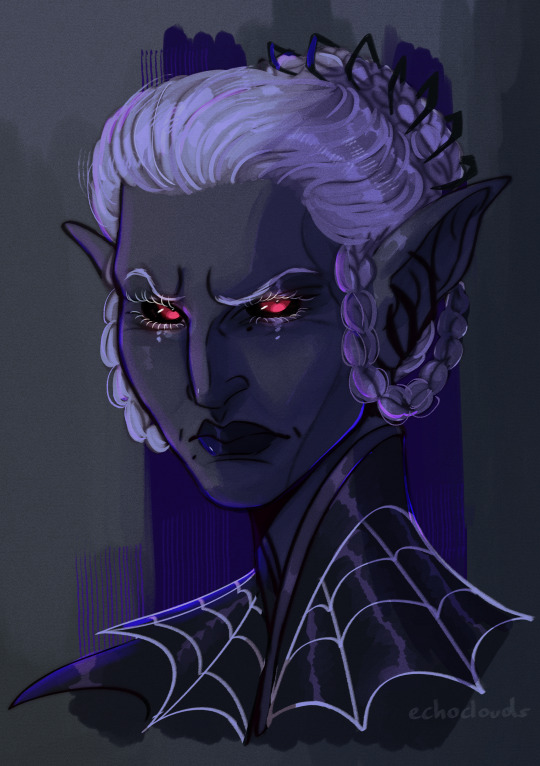
More Khaless, my powerhungry priestess of Lolth and sister of Voradras
#House Adravo gets destroyed by Baenre around 1495 DR and she gets taken into House Faen Tlabbar#from 15th to 3rd House girl's ambitious...#oc: khaless#drow#dnd#dnd 5e#forgotten realms#dark elf#lolth#my art#elf#dungeons and dragons
132 notes
·
View notes
Text



characters for a new project im working on :) they're t4t
dont worry abt chelsea's name card
#chelsea#emi#ocs#edgy art#chelsea wants to help!#which is the name of this project. i might change it idk#it's another rpgmaker project bc the one i intended to be my first got too ambitious and i needed to reel it in with a simpler concept#character design#t4t#transfem#trans girl#transbians#original character
268 notes
·
View notes
Text
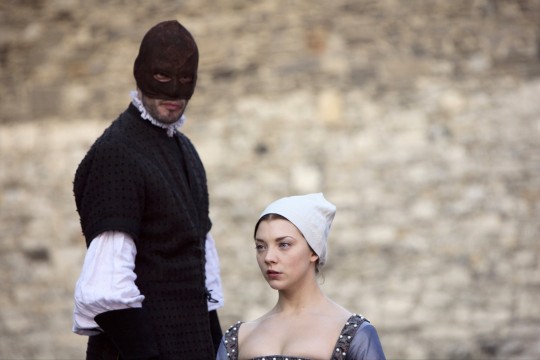
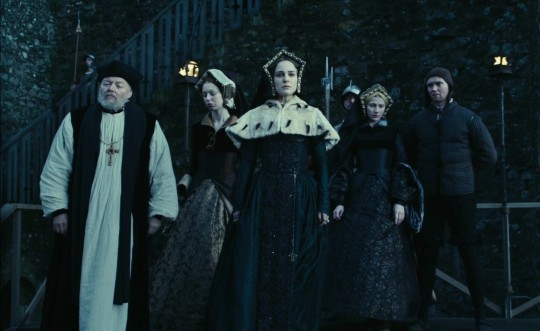
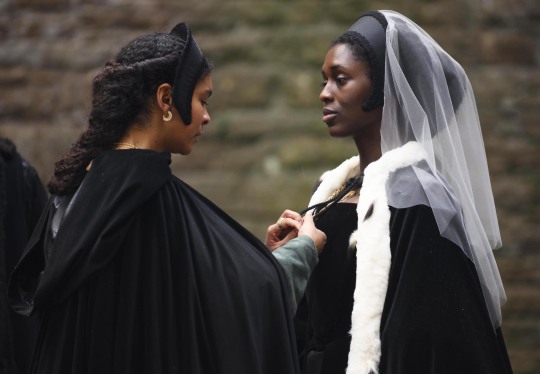
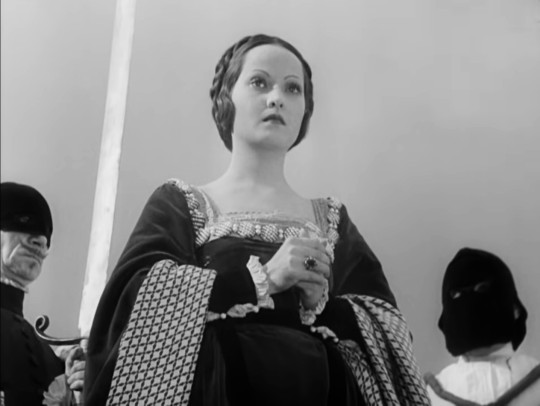
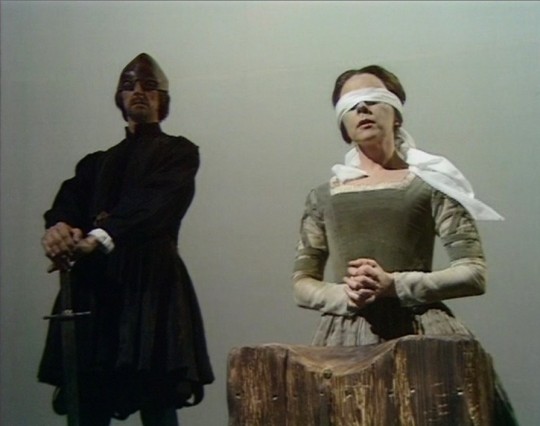
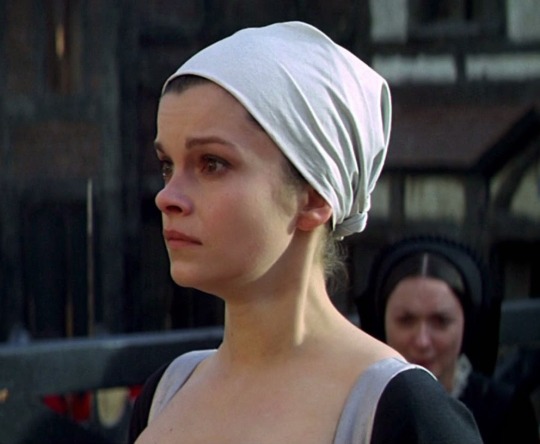

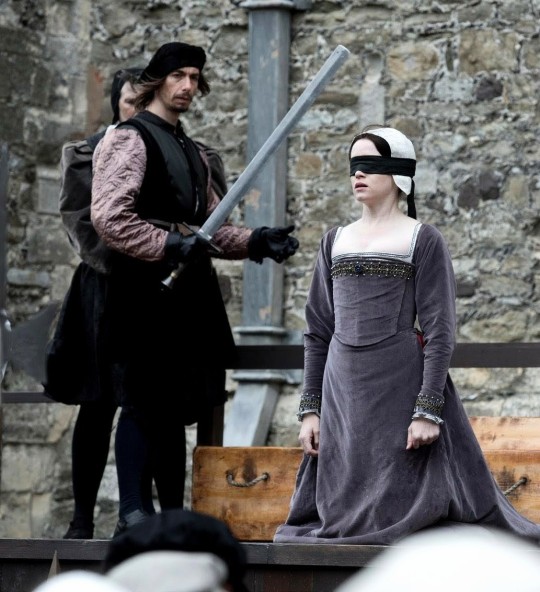
May 19, 1536 - Anne Boleyn is Beheaded
"Good Christian people, I have come here to die. For according to the law, and by the law, I am judged to die and therefore, I will speak nothing against it. I am come hither to accuse no man, nor to speak of that whereof I am accused and condemned to die. But I pray God save the King and send him long to reign over you, for a gentler nor a more merciful prince was there never. And to me he was ever a good, a gentle, and sovereign lord. And if any person will meddle of my cause, I require them to judge the best. And thus I take my leave of the world and of you all, and I heartily desire you all to pray for me. O Lord, have mercy on me. To God, I commend my soul.' And then she knelt down, saying, 'To Christ I commend my soul, Jesu receive my soul', divers times, till that her head was stricken off with the sword.” - Anne's execution, as reported in Hall's Chronicle (1548)
""On a scaffold made there for the said execution, the said Queen Anne said thus: 'Masters, I here humbly submit me to the law, as the law hath judged me. And as for mine offenses, I here accuse no man; God knoweth them. I remit them to God, beseeching him to have mercy on my soul. And I beseech Jesu, save my sovereign and master, the King - the most godly, noble, and gentle prince that is, and long to reign over you.' Which words were spoken with a goodly smiling countenance. And this done, she knelt down on her knees and said: "To Jesu Christ, I commend my soul'. And suddenly, the hangman smote off her head at a stroke with a sword." - Anne's execution, as reported in Wriothesley's Chronicle (1559)
"And so she went to the place of her ordeal
To obey the will of justice,
Still showing a serene countenance,
As if she did not grieve for this world in any way;
For her coloring and face were such
That never before did she seem so beautiful ...
There was no one who does not have firm hope
That her spirit will not be in agony,
Given her great faith and wise patience,
Which rose above womanly courage.
Everyone, on the basis of her mightily steady end,
Judges her life to have been prudent
And believes they have committed a great offense
In having thought so ill of her." - Lancelot de Carle's The Story of the Fall of Anne Boleyn (1536, trans. Joann Dellaneva)
"Anne, the late Queen, suffered with sword this day within the Tower upon a new scaffold and died boldly. Jesu take them [i.e. Anne and the five men] to His mercy if it be His will." - John Husee to Lord Lisle, May 19, 1536
#tudor era#anne boleyn#tudorerasource#dailytudors#perioddramaedit#anneboleynedit#I'm in mourning today tbh#mourning this brave ambitious and incredibly determined woman#tears are actually in my eyes as I write this#RIP Queen Anne#your legacy will live on#and fuck Henry!!!#wanted to supplement the familiar Hall execution speech#with three lesser known sources#especially de Carle since the Dellaneva edition is expensive and print only#the tudors#natalie dormer#the six wives of henry viii 1970#dorothy tutin#anne boleyn 2021#jodie turner smith#anne of the thousand days#genevieve bujold#wolf hall#claire foy#blood sex and royalty#amy james kelly#the private life of henry viii#merle oberon#the other boleyn girl
108 notes
·
View notes
Text
gang do you think *checks list* 22 love interests is too many?
#sophie speaks#im not actually listening btw i have never made a decision in my life and im not about to start now#routes are for babies we do mental gymnastics here#i am. if not clinically insane at least a little ambitious#i write for the girls that would go 'wait i changed my mind' 30 times as a kid when they had to choose which icecream theyd get#no this isnt a personal anecdote#(lying)#fr though at like gelato places i get like 5 different taste tests and id get more if i thought it wasnt such a social crime
33 notes
·
View notes
Photo

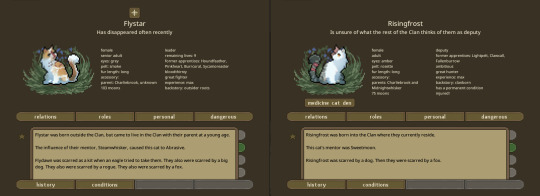
murder sisters
#clan gen#clangen#warrior cats#warriors#wc#wc oc#the art block is strong but the desire to draw my fav pixel cats is stronger#they are leader and deputy who may or may not have killed some guys to get these positions#(actually risingfrost is innocent but doesn't really mind her sister's murderous tendencies bc she'd an ambitious girl)#flystar doesn't trust anyone outside her family. she's been through hell and made it everyone's problem#honestly slay#my art
882 notes
·
View notes
Text

(◡ ω ◡)✿⋆.˚⋆₊ ⊹⭐️🎀ASUKA⭐️🎀
#🍎🎀⭐️ ⊹︵︵︵ ⊹ ୨୧ ⊹ ︵︵︵ ⊹ 🍎🎀⭐️#🎀🎈⭐️ ‧₊˚ ⋅⋅˚ ๑‧˚₊˚ ๑‧˚₊꒷︶🍮🎀︶꒷꒦⊹๑‧˚₊🎀🎈⭐️.・✫・#アニメ#かわいい#🕷🎀˚₊‧꒰ა ♡ ໒꒱ ‧₊˚🎀🕷#animecore#anime#otakucore#kawaii#kawaiicore#webcore#00s#2000s#2000s core#emocore#weebcore#vn#visual novel#game cg#jojifuku#WIZARD GIRL AMBITIOUS#WGA#ウィザードガールアンビシャス
229 notes
·
View notes
Text
When I see stuff like this I kinda want to bash my head into a wall:

To start off, I’m not sure whether this person was commenting on book or show Cersei, but honestly, it doesn’t even matter because she’s so much more than the ‘ambitious villain’ or the ‘murderous girlboss’ tropes in both the book and show.
(Of course, I do have my issues with the way Cersei was written in the show like most people but this is simply a rant post so I’m not going to go through the differences of Show vs Book Cersei)
Cersei is a female character who was shaped by her environment, who’s insecurities were created by her environment, and she’s a woman who’s idiotic mistakes can be traced back to how her environment shaped her. She’s much more than a murderous girlboss, she’s both a victim of the system and also a beneficiary of it, while also acting as an agent of it to keep the status quo while also desiring what the system denied her.
Cersei is NUANCED and complicated and even now people hate that about her and want her to have been a purely evil woman handcrafted in a vacuum, ignoring the context of her life because readers would rather not engage with Cersei’s victimhood and nuances because that ruins their idea of: She Was The Problem and Always The Problem. (People would rather say that she deserved her walk of shame instead of interacting meaningfully with the theme of systematic gender-based violence that is so prevalent in Cersei’s story. The exploration of patriarchal violence in Show Alicent’s story is done so horribly in comparison.)
And what really pissed me off about these tags is that this person has clearly decided that they don’t care to interact with the nuance of Cersei and are fine with flattening her, and yet they shit on others for not liking Alicent.
Because of the way Alicent is written in this show, she almost always has a ‘woe is me I can do no wrong’ attitude, which of course drives people away from the character (woe is me I deserve to take a child’s eye 🥺). However, what actually annoys me is how she’s made out to be stupid, foolish, ignorant, and inconsistent due to the horrible writing of this show, all of which are deviations from her book characterization. Also, I despise it when people want me to support writing decisions and changes made in adaptations that are downright misogynistic and are meant to attract the male gaze.
But what pisses many people, including myself, off is how the changes made negatively impacted many other characters. Alicent’s terrible characterization is like a black hole that distorts and warps the whole story! It’s annoying af!
So when people like this say: ‘She’s nuanced and people just can’t handle it 🙄;’ I say: No. She’s horribly written and a different character from the book and people have a right to be critical about these changes that stripped a female character of 1) her agency and 2) her intelligence!
And the thing is, there was little reason for the writers to have made all these changes to Alicent’s characterization! In the book she is an interesting character with clear motives and understandable reactions. She’s cunning and ambitious and acts the way a noble lady who became queen would. And despite her clear ambitions and dislike of Rhaenyra, she still makes a comment wondering about who would protect the Princess from Ser Criston, and yet she then takes Cole into her service after his falling out with Rhaenyra. That’s a perfect example of nuance! Show Alicent could never compare to book Alicent’s clear moral values and consistent disregard of said moral values in pursuit of power.
And because of this, Book Alicent isn’t easy to stomach. It’s hard for most people to come to terms with a character like her and it’s even harder for people to feel sympathetic for her at the end when she went mad with grief.
On the other hand, Show Alicent was designed in a way to garner pity, and when the writers felt like her current arc wouldn’t be enough to garner the specific reaction they wanted they would then throw in a time skip and suddenly she’s completely different and yet still Thee victim. She’s designed to be as sympathetic as fucking possible! The camera angles, the background music, and the lighting is set up in a way to make sure you the viewer feels pity or sympathy for her! Cause that’s her role in this series! She’s thee Ultimate Victim!
But too bad for the writers as many people are fed up with this kind of inconsistent writing. Even when the writers created a whole new challenge for Alicent where she’s shitted on by the green council and forced to face the beast she helped to raise, I and many others could never feel any satisfaction as it was clear that once again Alicent was being made to be Thee Ultimate Victim who was just led astray by the patriarchy and was a victim of it and was only just realizing it so don’t you pity her don’t you feel sad for her and now she’s trying to do the right thing so pls pls pls pity her 🥺~ So it shouldn’t be surprising that many people are annoyed by these eNLiGhtEnEd changes that have led to a complete deviation from the source material.
To summarize: Cersei is an excellent fucking character who’s by no means easy to stomach, and because she’s not easy to stomach she’s often reduced to annoying ass tropes by dumbasses who are reading above their comprehension level. But when you actually try to understand her, you can easily see why she turned out the way she did and you can feel sympathy for her while understanding that she’s both victim and perpetrator! On the other hand, Show Alicent is a mess and HOTD is trying to make her serve a different narrative role than she did in the books so ofc people are going to be unhappy with the changes as book readers are once again faced with the annoying reality that the writers don’t give a fuck about the source material.
#tbh i can’t believe im actually posting about this show again#but i got so angry by the way that these tags were worded#maybe the person didn’t mean to make it sound as tho cersei wasn’t nuanced to them#but reading between the lines kinda makes it seem as tho they were implying that#rant post#just annoyed af rn#alicent’s narrative role has changed and yes i’m very annoyed by that and that’s one of the reasons as to why i dropped hotd#cause wtf are they going to change next in order to be consistent with these changes?#unless hotd writers decide to once again change alicent’s whole ass character arc and make her seem even more fking wishy washy#bsffr alicent doesn’t come close to cerseis lvl of nuance#reducing cersei to Ambitious Villain is literally rage inducing#tbh it clearly shows that this person only appreciates certain kinds of female characters and can’t stomach badass girl bosses 🙄#not to say that GOTs writing was good lol it was shit but at least the female characters had consistent goals!#hotd fandom critical#anti alicent stans#anti alicent hightower#cersei lannister#the audacity to say that cersei doesn’t display real flaws and isn’t vulnerable#maybe i’m blowing this out of proportion and maybe im making a lot of assumptions but im struggling to care bc im so done with alicent stans#i’m real tired so i’m sorry about any grammar mistakes !#keep cersei’s name outa ur damn mouths 😡
51 notes
·
View notes
Text
All those lonely little nights when I feel hopeless and scared are just stepping stones to make way for my breakthrough. I can feel it.
#quotes#life#lit#deep quotes#writing#poetry#love quotes#life quotes#life quote motivation#writers on tumblr#breakthrough#girl bloggers#girlblogging#girl boss aesthetic#ambitions#ambitious#success mindset#success
33 notes
·
View notes
Text








margaret beaufort you will always be biblically accurate alicent hightower
#margaret was very religious#margaret thought god wanted her son to rule#she didn’t mind killing to do so#LETS NOT FORGET THAT SHE WAS BEEFING WITH A BLONDE YOUNGER GIRL WHO HAD AN AFFAIR WITH HER UNCLE#her biggest enemy was a blonde#deep down she’s just an ambitious woman#margaret beaufort#alicent hightower#house of the dragon#asoiaf#aegon ii targaryen#rhaenyra targaryen#criston cole#viserys targaryen#the white queen#twq
27 notes
·
View notes